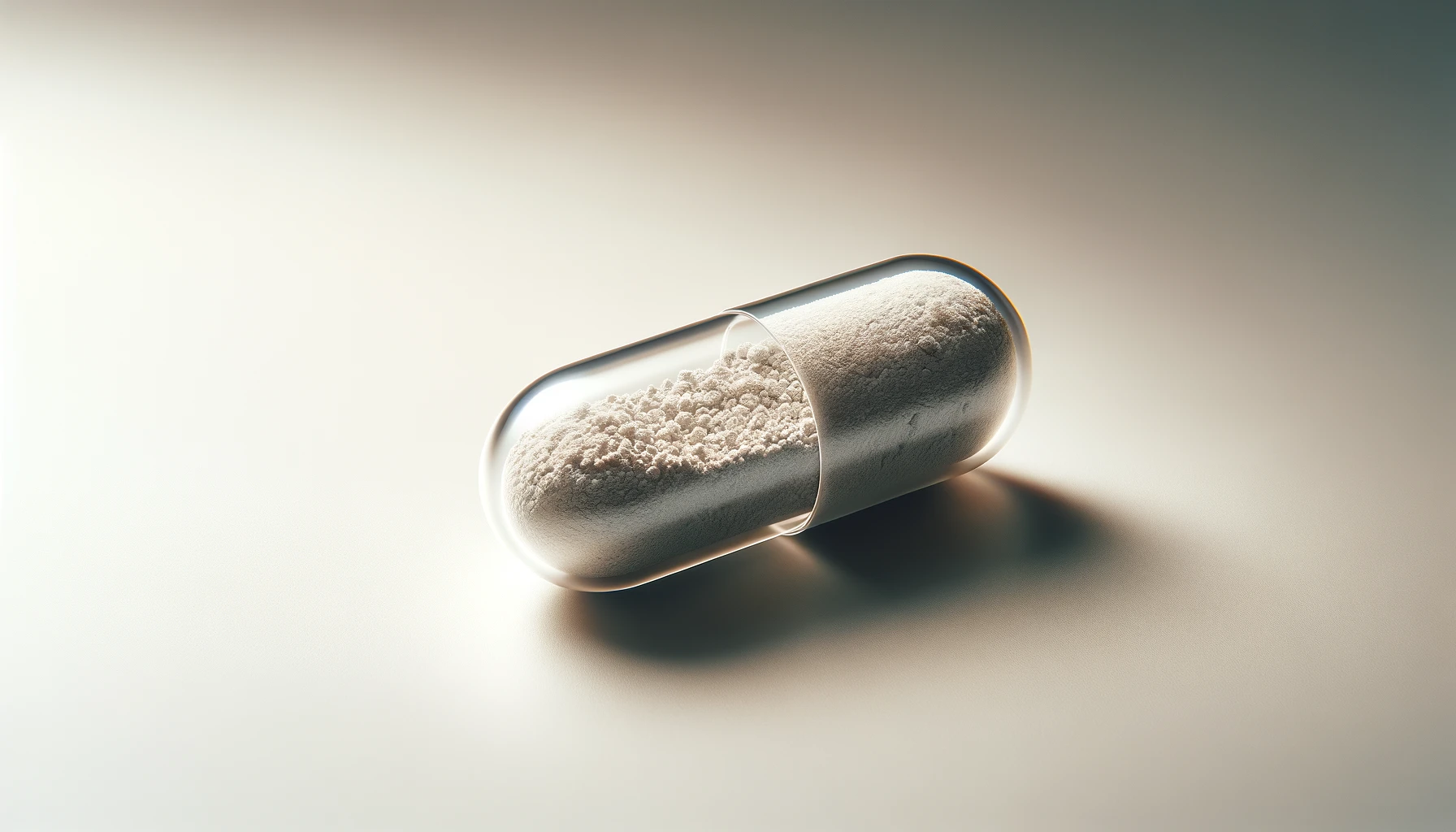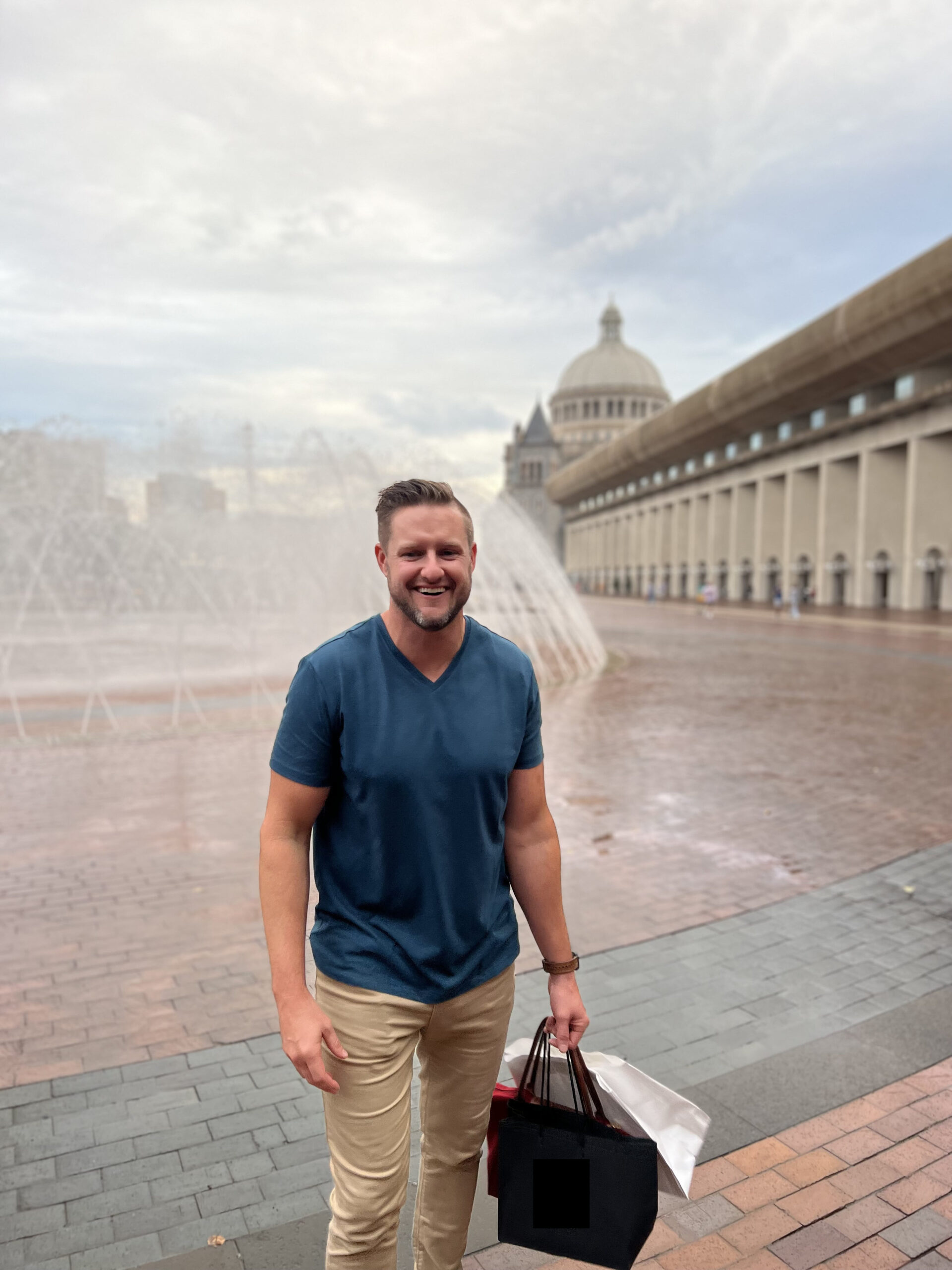Psychedelic microdosing, the practice of consuming very low, sub-hallucinogenic doses of substances like LSD or psilocybin mushrooms, has surged in popularity as a means to enhance creativity, boost productivity, and improve mental health. This approach, rooted in the counterculture movements of the 1960s, has found its way into modern wellness and self-improvement circles. Despite its controversial status and legal barriers in many places, anecdotal evidence suggests a growing number of people are turning to microdosing to navigate the complexities of contemporary life. By exploring this phenomenon, we delve into both its historical context and its potential implications for future societal norms around drug use and mental health care.
Key Takeaways
- Microdosing involves taking sub-perceptual doses of psychedelics, which means the doses are too small to induce full-blown hallucinations but may improve mood, creativity, and focus.
- Research into psychedelic microdosing is still in its early stages, but preliminary studies and personal experiences suggest potential benefits for mental health, including reduced anxiety and depression symptoms.
- Safety is paramount when considering microdosing. It’s essential to research and understand the substances being used, their sources, and the correct dosages to minimize risks.
- Legal considerations cannot be overlooked, as many psychedelics remain illegal in numerous jurisdictions. Always stay informed about the laws in your area to avoid legal consequences.
- Resources like SAMHSA’s National Helpline are available for those seeking information or help related to substance use and mental health.
- Organizations like Project Circle are working towards providing safe, legal access to psilocybin services, indicating a growing interest and acceptance of psychedelic-assisted therapies.
Understanding Psychedelics
History Overview
Psychedelics have been part of human culture for thousands of years. Ancient civilizations used these substances in rituals and ceremonies to connect with the spiritual world. The origins of psychedelic use trace back to indigenous tribes in South America and ancient cultures across the globe.
The 1960s marked a significant turning point. During this era, psychedelics re-emerged as tools for exploration of the mind and consciousness. This period saw a surge in research and a resurgence of interest that laid the groundwork for today’s microdosing practices.
In recent years, there has been a renewed scientific interest in psychedelics. Researchers are studying their potential to treat mental health issues like depression and PTSD. This shift represents a promising development in our understanding of these powerful substances.
Types Commonly Used
For microdosing, certain psychedelics are more popular than others. LSD, psilocybin mushrooms, and MDMA stand out as the most common choices. Each offers unique effects that appeal to those exploring microdosing for various reasons.
Less commonly used substances include mescaline and DMT. These tend to be less accessible but are sought after for their distinct experiences. The differences in effects between these substances can significantly impact an individual’s microdosing journey.
Legal Status
The legal landscape for psychedelics is complex and varies widely around the world. In the United States, most psychedelics remain classified as Schedule I drugs, indicating a high potential for abuse and no accepted medical use.
However, there are ongoing efforts aimed at changing this status. Several U.S. cities have decriminalized the possession of certain psychedelics, signaling a shift towards more progressive policies.
Globally, countries like Portugal and the Netherlands have adopted more lenient policies towards drug possession, including psychedelics. These changes hint at a growing recognition of the potential benefits of these substances.
What is Microdosing
Definition
Microdosing involves taking sub-perceptual doses of psychedelics. This means the doses are too small to cause full-blown psychedelic effects. Instead of the intense visuals or deep introspection typical with higher doses, microdosing aims for subtler changes. People pursue it for enhanced creativity and better mood among other benefits.
The key difference between microdosing and traditional psychedelic use lies in the intent and outcomes. While larger doses aim for profound psychological experiences, microdosing focuses on integrating minor perceptual enhancements into daily life.
Benefits
Many who microdose report significant improvements in their daily lives. Increased creativity, greater productivity, and deeper emotional insight rank high among these benefits. Some even find it helps with mental health conditions like depression and anxiety.
Anecdotal evidence backs up claims of both physical and mental enhancements from microdosing. Users often describe feeling more energized, emotionally balanced, and connected to others. Though scientific research is still catching up, early studies suggest there might be truth to these reports.
Common Substances
LSD and psilocybin mushrooms are the most common choices for microdosing. Both substances have a long history in psychedelic culture and have been studied for their potential therapeutic benefits. Recently, 1P-LSD has emerged as a popular alternative due to its similar effects to LSD but with legal status in some areas.
The choice of substance usually depends on the desired effects. For instance, those seeking creative inspiration might lean towards LSD, while individuals looking for emotional healing may prefer psilocybin.
Microdosing and Mental Health
Anxiety Reduction
Recent studies have shed light on the potential of microdosing to alleviate anxiety. Researchers observed that participants who engaged in microdosing reported significantly lower levels of anxiety compared to those who didn’t. These findings suggest a promising avenue for individuals struggling with chronic anxiety.
One compelling case involves Sarah, a 35-year-old graphic designer. She turned to microdosing after traditional anxiety treatments fell short. Sarah experienced a noticeable decrease in her daily anxiety levels, describing it as a “veil being lifted.” Her story is just one among many indicating that microdosing could serve as a valuable complement to conventional methods.
Depression Management
The pursuit of alternative depression therapies has brought microdosing into the spotlight. Scientific research indicates its efficacy in providing relief from depressive symptoms. A notable study found that subjects practicing microdosing showed improvements comparable to those achieved through standard antidepressants.
Testimonies from individuals like John, who battled depression for years, highlight the transformative impact of microdosing. After starting a regimen, John noticed an uplift in mood and overall outlook, attributing his progress to this unconventional approach.
This therapeutic potential is often linked to serotonin—a key neurotransmitter involved in mood regulation. Psychedelics used in microdosing are believed to enhance serotonin activity, mirroring the action of many antidepressants but without the typical side effects.
Creativity Boost
The connection between psychedelics and creativity is well-documented, with numerous studies pointing to enhanced problem-solving abilities and innovative thinking post-microdosing. Artists and professionals across various fields report significant creative breakthroughs attributed directly to their microdosing practices.
For instance, Emily, an author facing writer’s block, found new inspiration and flow in her work after beginning to microdose. Similarly, tech innovator Alex credits his groundbreaking ideas to the clarity and originality fostered by his microdosing routine.
These anecdotes support the theory that psychedelics can facilitate a shift in perspective, enabling users to approach problems with fresh eyes and uncover novel solutions. This mechanism is thought to stem from psychedelics’ ability to increase neural connectivity, allowing for more dynamic thought patterns.
How to Microdose Safely
Dosage Guidelines
Microdosing involves taking sub-perceptual doses of psychedelic substances. This means the dose is too small to cause full-blown hallucinations but large enough to affect mood and cognition. Common substances include LSD, with doses between 5-10 micrograms, and psilocybin (found in magic mushrooms), with 0.1-0.3 grams recommended.
It’s crucial to start with low doses. This helps understand how your body reacts. Some may feel effects at lower doses than others. Adjusting based on personal tolerance is important for safety and effectiveness.
However, risks come with frequent or excessive dosing. It can lead to increased tolerance, requiring higher doses for the same effect. It might also trigger underlying mental health issues.
Scheduling Doses
A common schedule is one day on, two days off. This pattern helps prevent tolerance buildup and allows users to reflect on their experiences. The rationale behind this schedule is giving the brain time to reset.
Adjusting schedules based on individual responses and goals is key. For some, microdosing during workdays enhances creativity and productivity. Others find it beneficial for weekend relaxation. Listen to your body and adjust as needed.
Potential Risks
While microdosing can offer benefits, it’s not without risks. Side effects might include anxiety, restlessness, or physical discomfort like nausea. Psychological risks are particularly significant for those with a history of mental health issues.
Legally, possession and use of psychedelics remain a risk in many places. Ensure you’re aware of local laws to avoid legal troubles.
The dangers of microdosing without proper information or guidance cannot be overstated. Misidentifying substances or incorrect dosing can have serious consequences.
SAMHSA’s National Helpline
Confidentiality Assurance
SAMHSA’s National Helpline understands the sensitivity surrounding psychedelic microdosing. They guarantee privacy and confidentiality for everyone reaching out. This includes those seeking information or services related to this practice.
They employ robust measures to protect personal data and consultation details. This ensures that conversations remain private, fostering a safe environment for open discussion. Trust and discretion are paramount, especially when discussing topics like psychedelic use. Individuals can rest assured that their inquiries are handled with the utmost respect and confidentiality.
Operation Hours
The helpline offers extensive operation hours to ensure support is always available. They provide 24/7 resources and emergency contacts for immediate assistance. This is crucial for individuals in need of urgent help or guidance.
Their flexibility in scheduling accommodates different time zones and schedules, making support accessible worldwide. Whether it’s late at night or early in the morning, someone is always ready to listen and assist.
Language Options
To cater to a global audience, the helpline offers services in multiple languages. This includes major world languages, ensuring that more people have access to information and support regarding psychedelic microdosing.
Currently available languages include English, Spanish, Mandarin, and French among others. Plans are underway to expand these options based on demand. This highlights SAMHSA’s commitment to inclusivity and accessibility in providing crucial health services.
Psychedelic Microdosing Research
Recent Studies
Recent research has shed light on microdosing’s potential benefits. A study published in 2021 found that individuals reported improved mood and creativity after microdosing psychedelics. Another key finding is the reduction of anxiety symptoms, as noted in a 2020 study. These studies are pivotal for understanding how small doses of psychedelics might aid mental health without inducing full psychedelic experiences.
Ongoing research aims to delve deeper into these effects. For instance, a large-scale study scheduled for late 2023 seeks to explore microdosing’s impact on cognitive function over time. The significance of such research cannot be overstated, as it paves the way for psychedelic science advancements.
Long-term Effects
The long-term impacts of regular microdosing remain somewhat elusive due to the novelty of this practice. However, initial findings suggest a range of benefits, including sustained improvements in mental well-being and creativity. Conversely, concerns have been raised about potential risks like altered heart rate or blood pressure with prolonged use.
More importantly, there’s a consensus among scientists that further research is necessary to fully comprehend these long-term effects. This includes understanding both the positive outcomes and any possible health risks associated with continuous microdosing.
Placebo Effect
The psychological aspect of microdosing introduces the possibility of a placebo effect, where individuals believe they’re experiencing benefits simply because they expect to. Studies employing placebo controls are crucial for distinguishing actual effects from those induced by participants’ expectations.
A notable study conducted in 2019 revealed that when participants were unaware if they were taking a placebo or actual psychedelics, many reported similar improvements in mood and focus regardless of the group they were in. This underscores the importance of controlled studies in establishing the true efficacy of microdosing practices.
Personal Experiences with Microdosing
Success Stories
Many individuals have found transformative benefits in microdosing, with experiences varying widely across professions and personal backgrounds. A software developer reported enhanced focus and creativity, enabling him to solve complex problems more efficiently. His story is not unique. An artist shared how microdosing sparked a burst of creativity and allowed her to see her work in a new light, leading to her most successful exhibition.
Mental health improvements are also common. One individual struggling with anxiety felt a significant reduction in symptoms, describing the experience as lifting a fog that had clouded his mind for years. These stories highlight the deeply personal nature of microdosing outcomes.
Challenges Faced
Despite success stories, microdosers often face hurdles. Finding safe and reliable sources for psychedelic substances poses a significant challenge. The legal gray area surrounding psychedelics complicates access, forcing many to navigate underground markets.
Stigma and misconceptions about psychedelic use persist, making some hesitant to share their experiences openly. This silence hampers broader understanding and acceptance of microdosing as a potential wellness tool. Furthermore, legal repercussions remain a concern for many, adding stress to an already delicate process.
Tips for Beginners
For those curious about exploring microdosing, starting safely is paramount. Research thoroughly before beginning and consider consulting healthcare professionals knowledgeable about psychedelics. Sourcing substances from reliable outlets is crucial to ensure safety and consistency.
Starting with low doses cannot be overstressed; it allows individuals to gauge their response without overwhelming effects. Keeping a detailed journal helps track progress, changes in mood, productivity levels, or any side effects. This practice can offer insightful data on how microdosing affects one’s daily life.
Navigating Legalities
Current Laws
Recent years have seen a shift in the legal landscape surrounding psychedelics and microdosing. Oregon became the first state to decriminalize psilocybin for therapeutic use in 2020. This landmark decision has opened doors for further research and potentially broader access to these substances.
The impact of such laws is profound. They not only facilitate scientific inquiry but also alter public perception, gradually shifting views towards acceptance. Legal milestones like Denver’s decriminalization of personal use and possession of psilocybin mushrooms in 2019 have set precedents, encouraging other states to reconsider their stance on psychedelics.
Advocacy Groups
A number of organizations tirelessly work towards reshaping policies around psychedelics. The Multidisciplinary Association for Psychedelic Studies (MAPS) stands out, focusing on research and education to develop medical, legal, and cultural contexts for people to benefit from the careful uses of psychedelics.
Other notable groups include the Beckley Foundation and Decriminalize Nature. These entities aim for policy reform and increased awareness through groundbreaking studies and advocacy. They offer avenues for individuals to get involved, be it through volunteering, donations, or participating in community events.
One significant campaign led by MAPS is pushing for MDMA-assisted psychotherapy as a treatment for PTSD. This initiative showcases the potential of psychedelics beyond recreational use, aiming to change public policy and perception.
Future Prospects
Looking ahead, the prospects for microdosing are promising. Continuous research plays a crucial role in demystifying its benefits and risks, paving the way for its integration into mainstream medicine. The growing body of evidence supporting microdosing’s effectiveness in treating mental health issues suggests it could become a widely accepted therapeutic practice.
Public opinion is evolving alongside scientific discovery. As more people share their positive experiences with microdosing, societal acceptance increases. This shift could lead to more lenient laws worldwide, enabling easier access to these substances for therapeutic purposes.
Project Circle Psilocybin Service Center
Consultation Booking
To book a consultation at Project Circle, clients start by completing a detailed form. This form gathers essential information about their health, previous experiences with psychedelics, and what they hope to achieve through microdosing. Virtual consultations are available, ensuring anyone around the world can access the service. Each session is tailored to the individual’s specific needs and goals, making every consultation unique.
Clients must ensure they’re informed about their local laws on psilocybin before booking. This understanding is crucial for a safe and informed experience. The center’s team assists in navigating these complexities during the consultation process.
Services Offered
Project Circle offers a comprehensive range of services designed to support clients at every step of their microdosing journey. These include:
- Detailed information on microdosing practices.
- Personalized guidance based on individual health profiles and goals.
- Support in developing personalized dosing schedules.
- Integration coaching to help clients apply insights gained from their experiences.
Clients have access to a wealth of educational materials and an online community forum. These resources provide further learning opportunities and foster a sense of belonging among those exploring psychedelic microdosing.
Why Choose Us
Choosing Project Circle means partnering with a team that boasts significant expertise in psychedelic guidance. Our professionals have extensive experience in supporting individuals through their microdosing journeys. We prioritize safety, confidentiality, and personalized care above all else.
Our commitment to these principles has led to numerous success stories and positive feedback from our clients. They frequently highlight the transformative impact of our services on their personal and professional lives.
Closing Thoughts
Diving into the world of psychedelic microdosing, you’ve journeyed from understanding its roots to uncovering its potential for mental health. You’ve learned how to approach it safely and where to find support. Research and personal stories have shown its promise, yet navigating legalities remains crucial. With Project Circle Psilocybin Service Center, there’s a pathway towards informed exploration. Remember, this isn’t just about chasing a high; it’s about seeking wellness and understanding, responsibly. Your curiosity and caution are your best guides.
As you consider whether microdosing fits into your quest for well-being, stay informed and connected. Engage with communities that share your interest in psychedelics for mental health. Knowledge is power—use it to make choices that align with your values and legal boundaries. Let’s keep the conversation going; your voice matters in shaping the future of psychedelic exploration. Stay curious, stay safe.
Frequently Asked Questions
What is psychedelic microdosing?
Psychedelic microdosing involves taking very small, sub-hallucinogenic doses of substances like LSD or psilocybin to improve mental health, creativity, or overall well-being without experiencing the full psychedelic effects.
How can microdosing benefit mental health?
Microdosing has been reported to help with depression, anxiety, and PTSD by enhancing emotional openness, creativity, and energy levels, potentially improving overall mental health.
What are the key safety tips for microdosing?
To microdose safely, start with a very low dose, ensure you’re in a safe environment, do not operate heavy machinery while under the influence, and consider consulting a healthcare professional beforehand.
Can you provide information on SAMHSA’s National Helpline for substance use?
SAMHSA’s National Helpline (1-800-662-HELP) offers confidential free help from public health agencies to find substance use treatment and information.
What does current research say about psychedelic microdosing?
Recent studies suggest potential benefits of microdosing for mental health but emphasize the need for more rigorous research to fully understand its effects and safety.
Are there any personal success stories with microdosing?
Many individuals report improvements in mood, creativity, and focus from microdosing psychedelics. However, experiences vary widely and should be approached with caution.
How do I navigate the legal aspects of psychedelic microdosing?
Laws vary greatly by location; many psychedelics remain illegal in numerous jurisdictions. Always research local laws and regulations before considering microdosing.
What is Project Circle Psilocybin Service Center?
Project Circle is a service center aimed at providing safe access to psilocybin for therapeutic purposes, operating within legal frameworks where applicable.




